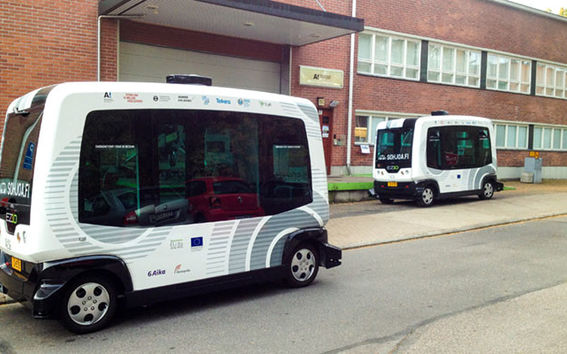Rerouting transport research: from driverless cars to fresh thinking

Transport is relying heavily, almost 95 per cent, on oil and not doing well in reducing its emissions. Transport research and policy are crucial to the global challenges related to energy, climate change and health.
'A lot of efforts are put on the technological development, like driverless cars, yet this locks us into the current system with high reliance on private vehicles. With autonomous driving, it may be even harder to get people out of their cars', says visiting professor Moshe Givoni from Tel Aviv University.
The rapid technological changes bring many business opportunities and increase the interest of players outside the transportation field. The new concept is often referred to as “smart mobility”.
'Today anything relating to new technological development and innovation is easily seen as “smart”. However, seeing the way the market is currently leading the transport sector, “smart” is the last word that comes into my mind.'
There are no specific technological problems on the way for a better and more sustainable transport system. Instead, changes are needed in people’s behaviour.
'Transport research and policy should focus on making people realize that a better choice to move around is using public transport and not private cars.'
Towards better travel experiences
Currently, time spent on travelling is seen as wasted. Instead of constantly trying to minimize the travel time and make transport as fast as possible, the concept of reasonable travel time should be investigated.
'With mobile phones, we can use and not waste the time in public transport. Small things like Wi-Fi and comfortable seats can improve the travel experience and attract people to use public transportation.'
One way to move forward is to reduce the demand for travel using information and communication technologies. More research is also needed to understand the implications of better transport connections on the economic geography of a country or a region.
Professor Givoni is pleased with the public transport in the Helsinki region. Nevertheless, he has concerns about the new metro service between Helsinki and Espoo.
'The new metro has not really improved the overall traffic system of the Espoo area. For those working and living in Espoo, the service level is reduced due to cancelling of many bus services.'
Professor Moshe Givoni will present his ideas on the challenges and opportunities for transport policy and research in a seminar to be held in Espoo, Otaniemi on December 19, 9-11 am, in Otakaari 4, hall 216.
Event info: http://www.aalto.fi/en/current/events/2017-12-04-004/
Read more news

Nature of Process: Exhibition by the students of the ‘Personal Exploration’ Course
Nature of Process is a multi-material exhibition of 14 Master´s students of Aalto ARTS
Doc+ connects research impact with career direction
Doc+ panels have brought together wide audiences in February to discuss doctoral careers and their diversity.
Apply Now: Unite! Visiting Professorships at TU Graz
TU Graz, Austria, invites experienced postdoctoral researchers to apply for two fully funded visiting professorships. The deadline for expressions of interest is 20 February 2026, and the positions will begin on 1 October 2026.






